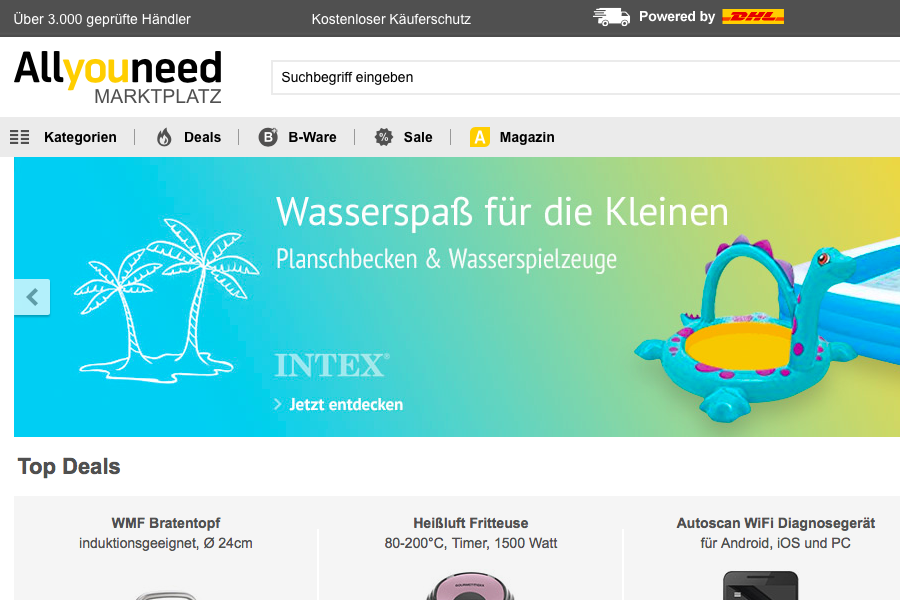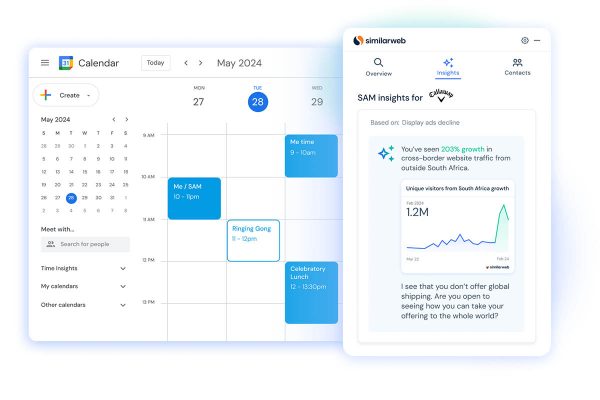It has been announced that German shipping firm DHL will be shutting down its own marketplace called Allyouneed.com. According to reports, the marketplace will stop operating in the second half of this year.
In an email to merchants that is quoted on the link above (in German), DHL says that the last 8 years have been successful and “good business” was done but the mother company has learnt that running a marketplace isn’t necessarily something they need to do.
According to recent reports from DHL, over 3,000 merchants were using the Allyouneed.com platform, which was previously known as MeinPaket.de until roughly three years ago. It’s not known the extent to which British merchants embraced the marketplace, if at all.
It is unclear whether the marketplace might persist, perhaps with a worker or management buy out, or it could be snapped up by investors. But keen to put a positive gloss on the closure, DHL points out that the experiment allowed them to better understand ecommerce and the online trading environment:
From the very beginning, our primary goal was to internally build up our ecommerce expertise in a sector-specific manner and to use this know-how in our logistical core business, because our core competence is and remains logistics. With the marketplace model, we have gathered valuable ecommerce expertise.
– DHL spokesperson
The story here isn’t really about Allyouneed.com but rather one a bigger question related to online marketplaces. We’ve seen something similar in the UK with the likes of Halfords and Tesco (which are retailers, unlike DHL) who have also shut down their online marketplace operations. Mostly because they want to concentrate on other priorities.
The question remains though whether organisations that have a primary focus elsewhere are capable of running an online marketplace, or rather have the focus and expertise to make one work. Or are marketplaces just better off, and more likely to thrive, as stand-alone businesses and a laser focus?







